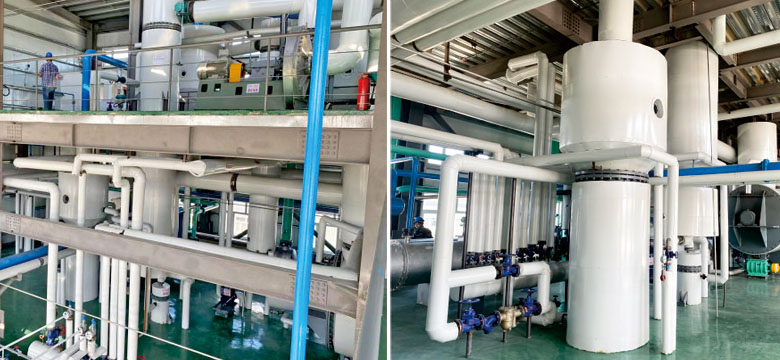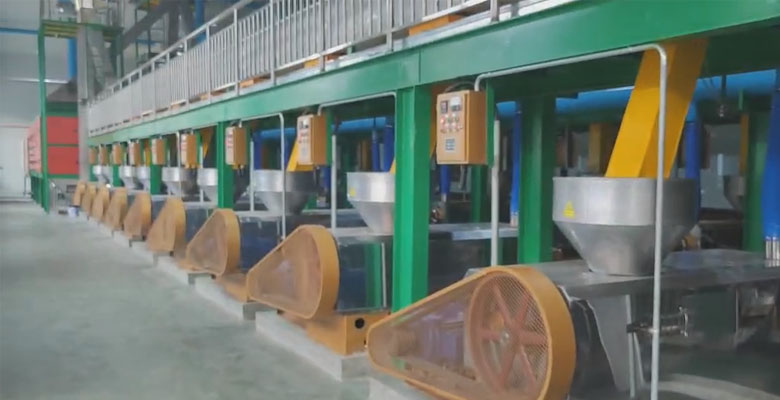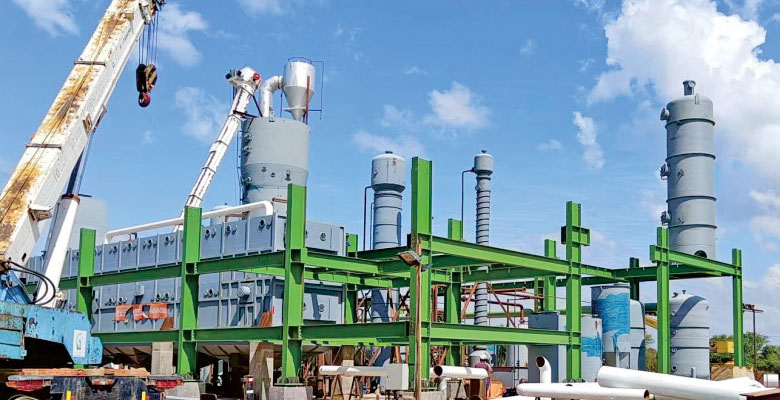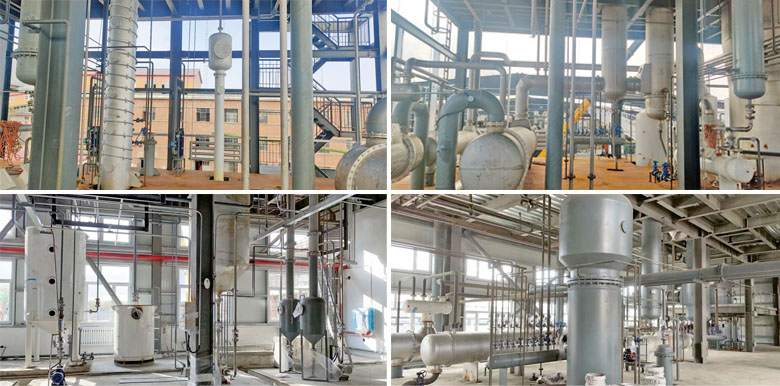Oil Extraction Plant, Soybean Oil Extraction Plant
Oil extraction plant plays a vital role in the production of vegetable oil, which is very important for various cooking and industrial uses. These plants usually consist of complete oil processing production lines, including pressing process and solvent extraction process. The choice of technology depends on the type of oilseeds processed and the required output.

Oil press technology:
Oil press technology, also known as screw press, is a mechanical method that uses screw press to extract oil from seeds. This method is especially suitable for peanuts, rapeseeds, sunflower seeds, cottonseeds and other materials rich in oil. The pressing process consists of several key stages:
Single pressing: Also known as full pressing, the purpose of this stage is to extract as much oil as possible from seeds or nuts, leaving about 5-7% residual oil content in the cake.

Pre-pressing: At this stage, about 70% of the oil is extracted, and the residual oil content in the cake is high, usually about 15-18%.
Hot pressing: Some oilseeds need to be heated before pressing for better extraction. It helps to release more oil by heating seeds, thus increasing the total output.
Cold pressing: In order to maintain the quality of oil, cold pressing is adopted, and the temperature is kept between 60 and 70°C, so as to prevent protein denaturation and ensure high-quality final products.
Advantages of screw oil pressing:
The advantages of screw press are various, including strong adaptability to various oils, flexible production capacity, high oil quality, light color, pure flavor, simple technology and low requirements for supporting equipment.
Solvent extraction process:
Solvent extraction process is used for oily materials with low oil content, such as soybeans. It involves using solvents to extract oil from seeds or nuts, and then recovering the solvents to obtain crude oil. The solvent extraction process includes several basic parts:

Extraction: Use rotary or lop type extractors for solvent extraction to ensure efficient extraction of oil from raw materials.
Evaporation: After extraction, the solvent is separated from the oil-solvent mixture (miscellaneous oil) by evaporation, leaving crude oil.
Desolvent: Desolvent the wet meal obtained after solvent leaching, and remove the residual solvent to ensure the safety and quality of the leached meal.
Solvent recovery: The solvent recovered in the extraction process is recovered by condenser to minimize waste and reduce the impact on the environment.
Advantages of solvent extraction:
Compared with mechanical pressing, solvent extraction method has many advantages:
Higher oil yield: Solvent extraction usually reduces the residual oil content in the filter cake, ensuring a higher oil yield of up to 99%.
Labor efficiency: Compared with mechanical pressing, solvent extraction requires less labor, thus improving efficiency and productivity.
Quality assurance: The solvent extraction process maintains a good working environment, ensures the high quality of the extracted powder, and meets the industry standards and consumer expectations.
Although solvent extraction may lead to residual solvent in crude oil, strict compliance with operating standards can ensure that the residual level in the final product remains undetectable.
Soybean oil extraction plant
Soybean oil is a widely used and versatile vegetable oil, which is the staple food in kitchens all over the world and the basic ingredient in various foods and industrial applications. The following is the industrial process of soybean oil mill.

Cleaning of soybean
The whole process begins with cleaning the soybean and removing impurities that may affect the quality of oil. Metal impurities can be quickly treated by magnetic separator, which sucks out any metal pollutants by magnetic force. On the other hand, non-metallic impurities are screened out by vibrating cleaning screen to ensure that only original soybeans can enter the next stage.
Crushing of soybean
After the soybean is cleaned, it will be pressed to separate the kernel from its protective skin. By using crushers, soybeans are ground into smaller particles.
Softening
Soybean is famous for its relatively low oil content, which needs to be softened to absorb every drop of oil. Softening is achieved by placing coffee beans at a controlled temperature, thus giving them the elasticity needed for the rolling process.
Soybeans rolling process
In this process, a flaking machine is used. It involves rolling oilseeds from particles into thin slices. When this is done, the cell structure of oilseeds is destroyed. This increases the surface area of oil exploitation.
Squeezing
Squeezing is to break the crushed soybeans to form porous and scattered granular materials.
Solvent extracting
This process uses highly volatile hydrocarbons such as hexane to effectively absorb any residual oil.
Refinement
The extracted oil is usually impure because it contains impurities. In order to obtain pure oil, a refining process is needed. Refining includes degumming, deacidification, decoloration and deodorization. Finally, deodorize to eliminate any residual odor and ensure the purity of the final product.
When soybean oil extraction equipment is obtained and operated according to the above procedures, pure soybean oil can be produced effectively. This multifunctional oil can be used for all kinds of frying at home. It is worth noting that soybean oil accounts for 80% of all edible oils used in commercial food production in the United States.


